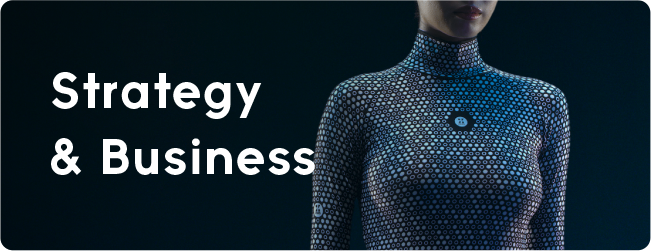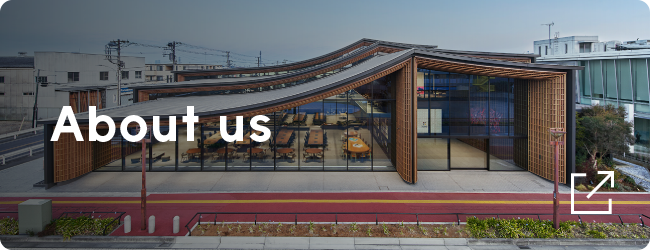- EN
- JP
Basic Policy
Social
Environment
© ZOZO, Inc. ALL RIGHTS RESERVED.
“Love” and “Stories” are needed in management
Dialogue with Mr. Shu Yamaguchi on corporate sustainability management

Representative Director,
President & CEO
ZOZO
SAWADA Kotaro

Representative
Leibniz Corporation
YAMAGUCHI Shu
With “Fashion Connects and Leads us to a Sustainable Future.” as its sustainability statement, ZOZO aims to create a world where people can continue to enjoy fashion forever.
In addition to the unique culture inherited from the company's founding, ZOZO is working to build a sustainable future using fashion and technology as resources.
However, compared with other leading countries in the world, it cannot be said that companies in Japan are making sufficient contributions to sustainability. In this day and age when the importance of sustainability management is being called for, what stance should companies take on social issues?
Through a dialogue between SAWADA Kotaro, Representative Director, President & CEO, and YAMAGUCHI Shu, independent researcher, author, and Representative of Leibniz Corporation, this report discusses how companies should survive in changing circumstances.
Sustainability is not about “What” but “Why”
— Around the world, the movement toward sustainable society is accelerating. What kind of initiatives are leading companies taking?

Yamaguchi : While not all companies are in this category, there are many companies that are committed to contributing to sustainability, not only from an ethical standpoint, but also for the purpose of securing their own profits.
For example, ING Group, a global financial group headquartered in Amsterdam, the Netherlands, has a mostly glass ceiling in its headquarters. The building is designed to be brightly lit by daylight, as the employees work in the daylight hours, so there is no need to use electricity.
You may wonder why on earth banks are so committed to sustainability. The answer, however, is simple: they own very large tracts of land and are in the business of using land as collateral.
A quarter of the Netherlands' land area is below 0 m above sea level, and if climate change becomes serious, the land will be submerged. In other words, the most important management issue for them is “not to raise the sea level any further.”
I think that the fact that they are able to successfully connect their own profit generation and contribution to sustainability is something that many Japanese companies should learn from.
ZOZO has a sustainability statement as “Fashion Connects and Leads us to a Sustainable Future.” What specific activities does ZOZO engage in?
Sawada : We have set and are implementing four key actions: “Highlight sustainable fashion choices to improve usersʼ experience,” “Create a made-to-order platform for zero waste,” “Promote diversity and inclusion among everyone involved in fashion,” and “Contribute to sustainable community development.”
We have defined our actions after much discussion and debate, and in doing so, we have also taken into consideration the profits of our own company. It is possible to prioritize immediate profits and manage in a sales-oriented manner. However, this would be an abandoned responsibility, and in the long term, it would be strangling us.
We have developed these four key actions as a means of contributing to a sustainable society while providing a return to shareholders and investors and also securing future profits.
In our sustainability statement, “Fashion Connects and Leads us to a Sustainable Future.,” the word we focused on the most was “connect.” This word conveys our desire to connect the profits of our shareholders and investors, the profits of our company, and the realization of a sustainable society, together with our various stakeholders.
Yamaguchi : As the saying goes, “When the tortoise falls, we all fall,” and if the earth is ruined, businesses can no longer survive. Companies must naturally address sustainability in order to survive for 50 or even 100 years. Institutional investors are no longer willing to invest in such companies, and statistics show that companies with a high percentage of diversity have a higher corporate value.
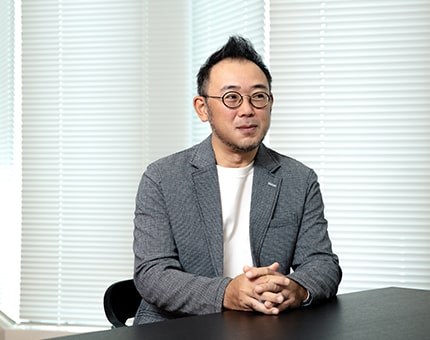
Sawada : Even so, in Japan, there is still a lot of demand for short-term results; even when we talk about 10 years from now, people ask, “So, what are you going to do this fiscal year?” And so on. As a CEO, I realize the importance of talking about the connection between business and sustainability.
Yamaguchi : Overseas investors say, “I can appreciate the efforts of Japanese companies, but all they do is explain the ‘what’ and not the ‘why’.” This means that Japanese companies are engaged in activities that contribute to sustainability, but they are unable to explain why they are focusing on these activities.
In this respect, ZOZO's four key actions are highly relevant to its business, and each of them has a story. I feel that this is a very rare type of initiative among Japanese companies.
Management and contribution to sustainability are not separate
— There are 17 targets in the SDGs. It would be difficult to contribute to all of them, but what kind of commitment is required to companies?
Yamaguchi : Between making a half-hearted effort by saying, “We are doing this because it is ethical,” and committing to a specific issue because it will benefit our company, the latter should probably have more of an impact. In that sense, I think there is great significance in making a commitment, even on a specific issue.
By the way, which of the four key actions is ZOZO focusing on the most?
Sawada : We recognize that all of these actions are important, but our top priority in our strategy is “Create a made-to-order platform for zero waste.” The apparel industry has a problem of mass production and mass disposal of products, but with made-to-order products, it is possible to reduce unsold waste to zero.
In addition, ZOZO has the technology to produce products tailored to individual body shapes, so that customers can obtain products in their optimal size even via EC sites. Although it takes about 10 days to deliver the products because they are made to order, we believe that this is a system that is not detrimental to anyone, and we would like to complete as soon as possible.
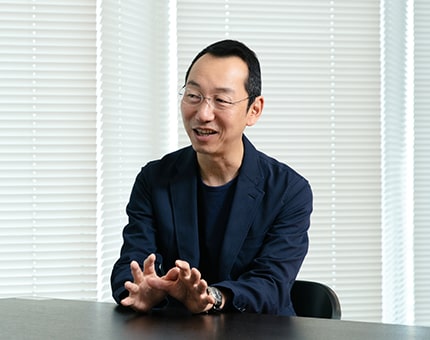
Yamaguchi : If they knew that products that fit their body shape could be made using a process that is less harmful to the environment, many consumers would be willing to buy them even if it takes a little longer.
Sawada : We have high expectations for the future, because as the build-to-order initiatives accelerate, we should be able to realize “sustainability management in the true sense of the word,” in which management and contributions to sustainability are integrated.
Organizations that have a meaning to their work become stronger
— In this era in which management is required to take a sustainability perspective, which abilities do you think are required of the people who will drive corporate growth?
Yamaguchi : To begin with, there are two types of abilities: “possessive ability” and “demonstrative ability.” Generally speaking, people with high “possessive ability” tend to be considered excellent, but it is meaningless if they cannot demonstrate their abilities.
I believe that the key to how we can increase our “demonstrative ability” is whether we have a love for our work and whether we feel meaning in our work. This is because the ability to demonstrate increases many times over depending on whether one feels meaning in one's work and is assigned to achieve appropriate growth.
In other words, an excellent organization is, simply put, a highly engaged organization. I believe that there is fundamental joy in fashion, and if there are many staff members who believe in this, then ZOZO will continue to grow.

Sawada : ZOZO has many staff members who love fashion, but the truth is that some of them are not that interested in what they wear. However, their engagement in their work doesn't change that much depending on whether or not they are highly interested in fashion.
This is because ZOZO staff members share and agree with our company's goals and “the ZOZO Way.” This is why they are able to take on new challenges one after another with enthusiasm and without fear. In the words of Mr. Yamaguchi, there are many staff members who have a high “demonstrative ability.”
Yamaguchi : So they feel their work is meaningful, as well as the organization is diverse.
Organizational diversity is an extremely important element in sustainable management, but there is a common misconception. Simply gathering people with diverse backgrounds only makes a disjointed organization.
In the case of ZOZO, I think the “the ZOZO Way” you mentioned probably plays a role in the “strong centripetal force” function. Please tell me more about it.
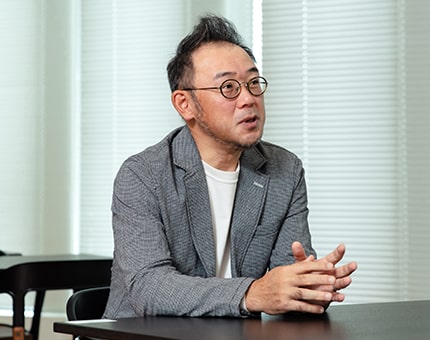
Sawada : We define “the ZOZO Way” in three words: “Imagine the unexpected. Chart the unexplored.” “Make a difference everyday” and “With Love.” We define a 'ZOZO person' as someone who has surprising ideas, who moves forward every day even if clumsily, and who has love for all stakeholders, including colleagues, as well as for the services they provide and the products they sell.
Yamaguchi : I feel that the word “love” captures the key to management. This is because in this day and age when it is difficult to differentiate products and services, I feel that love is much more important than market research.
This is just an analogy, but when approaching the person you are interested in, if you prepare only what the person likes, it will not be interesting, and you may not be able to get along well with the person.
Of course, it is fine to have such an opportunity, but it is smarter to ask the other person, “I know a nice restaurant, would you like to go there with me?” That would be smarter and, in my opinion, enrich the person's world.
Conducting market research and offering only what the customer “wants” is like giving a questionnaire to the person you are interested in and then deciding on a date plan. They say “customer thinking,” but they are not thinking at all. Looking around the world, I see that companies without love are still weak.
Sawada : Sustainability efforts are also something we can get serious about because of love. It is also for the survival of the company, but if you think about leaving a sustainable society to your children and grandchildren, we will not choose not to take action.
Sustainability is “doing what you can.”
— In the fashion industry, which is facing many issues, what are your expectations for ZOZO?
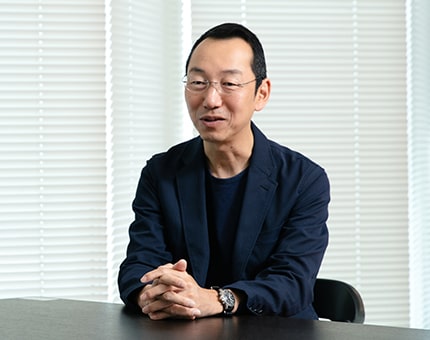
Yamaguchi : When it comes to the fashion industry, I am sure that many Japanese people are unaware of how much clothing is being discarded. So they try to get the products they want as cheaply and as quickly as possible. But in the end, if this situation continues, both the market and the global environment would be ruined.
To change this current situation, companies must sometimes lead consumers. Depending on what companies say, the global environment will move in either a positive or negative direction. I hope that companies like ZOZO, which has a lot of power in the industry, will continue to give appropriate messages to the market.
Sawada : Thank you very much. Last year, we launched a page on ZOZOTOWN called “elove by ZOZO” to introduce sustainable initiatives and products of brands and sustainability trends in the world. It is a steady activity, but we would be happy if it helps to push our customers' backs.
Yamaguchi : I think “starting from the steady things” is fine. The basic principle of sustainability is to “start with what you can do” If we set an unreasonable goal and cannot continue, it would be a total failure.
Nevertheless, the impact of the message from “ZOZOTOWN” which has more than 11 million users, is immeasurable. I sincerely hope and support that ZOZO will lead the way in sustainability management in Japan.

